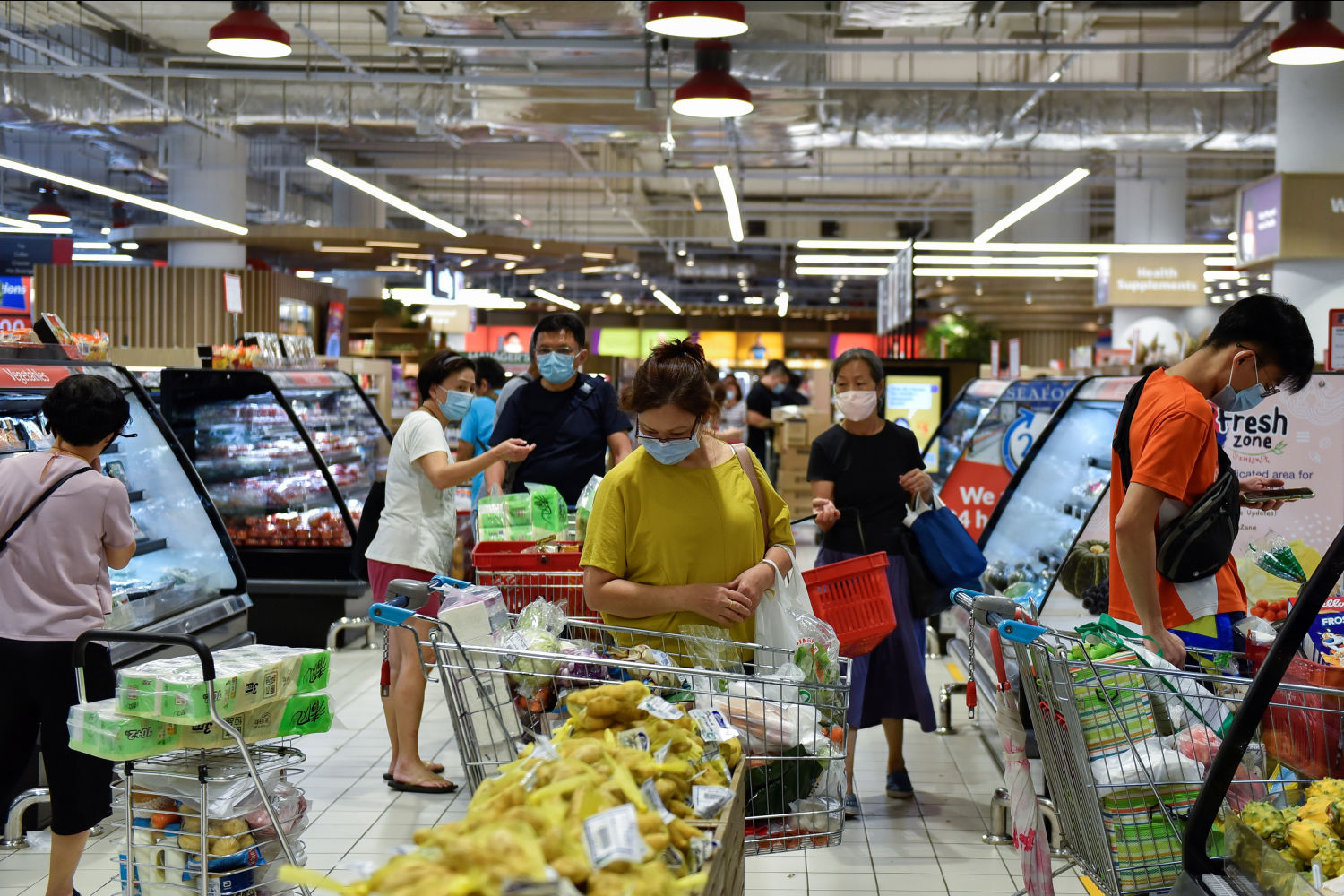(ATF) Economic events
Asian markets are set to open on a firm note after inflation fears were further calmed last week which triggered a strong finish at Wall Street.
But investors will likely face heightened volatility, given the constantly changing view on inflation and central bank actions to address pricing pressures.
“Heading into the week ahead, investors will have to decide whether to lean decisively on the Fed’s ‘transitory” side of the argument or the more hawkish calls from a growing number of economists and analysts, after a mixed week this week,” said Fawad Razaqzada, Market Analyst at TF Global Markets.
“I suppose a lot will depend on incoming data, which may mean we will see more sideways trading conditions than just up, up and more up,” he added.
Solid earnings are also lifting sentiment with 87% of the US companies that have reported having beaten street expectations. The US first-quarter earnings season is in its last leg with more than 90% of the S&P500 results announced.
Analysts now see year-over-year S&P earnings growth of 50.6%, in aggregate, for the January-March period, more than triple the rate forecast at the beginning of the quarter, per Refinitiv.
The coronavirus outlook for the region is a mixed bag and the shifting ground could influence trading during the week. India reported its smallest daily increase in coronavirus infections in nearly three weeks on Saturday while countries that have been successful in managing the pandemic have received fresh setbacks.
Taiwan authorities encouraged people to stay at home this weekend after a record 205 new local cases were reported Sunday and in Singapore, lockdown-like measures were reimposed after it reported two consecutive days of 24 new community cases each on Thursday and Friday.
Singapore saw 19 cases on Saturday. Both Singapore and Taiwan are seen as poster children of COVID control success.
In a week light on data releases, China will unveil statistics on industrial production, retail sales and fixed asset investments.
Industrial output is seen moderating to 10.5% year on year in April from 14.1% March and retail sales growth is seen easing to 23.5% year on year from 34.2% in March. Consensus has it that FAI growth will slow to 19% year on year ytd in April from 25.6%.
China’s central bank will take a decision on the Loan Prime Rate (LPR), the reference point against which banks price loans, this week on Thursday based on bank quotations.
It was last reduced by 20 basis points in April last year and has replaced the People’s Bank of China’s traditional benchmark lending rate in August 2019.
Markets do not expect changes to the LPR this month given that the PBoC hasn’t adjusted the rate on its medium-term lending facility (MLF), the usual precursor to an LPR move.
“There are few signs that the PBoC wants to push lending rates up. It has kept market interbank rates broadly in line with its policy rates in recent weeks,” said Julian Evans-Pritchard and Sheena Yue, economists at Capital Economics.
“It still appears relaxed about rising inflation. And it has already achieved its objective of bring credit growth back to its pre-virus trend using quantitative controls on lending,” they added.
Fund flow
Inflows into inflation protected assets, Chinese equities and European funds were the highlights of the week to May 12 as US inflation hit a 12-year high, vaccination coverage improved and Chinese data showed sustained recovery in the world’s second largest economy.
The inflation reading gave investors a reality check after the sheer levels of fiscal and monetary supporting the US economy had seen an investment stampede into the world’s largest economy.
“Commitments to Inflation Protected Bond Funds climbed to a five month high, Bank Loan Bond Funds added to their current inflow streak and Municipal Bond Funds recorded their 10th consecutive inflow,” said Cameron Brandt, EPFR’s research director.
Emerging market equities saw inflows for the third straight week with larger Asian markets and frontier markets enjoying some of the attention.
“While the higher-than expected US April inflation print may further fuel the debate about how temporary the surge in inflation will be in DM, the global backdrop remains favourable for EM assets,” said Barclays analysts Andreas Kolbe, Fabian Herold and Badr El Moutawakil.
Funds with socially responsible (SRI) or environmental, social and governance (ESG) mandates continue to fly high, with SRI/ESG Equity Funds recording their 51st inflow over the past 12 months while Equity Funds absorbed a net $25.7 billion in the week.
Commodities funds enjoyed their fourth straight week of inflows and Gold Funds racked up their biggest weekly inflow in four months as the price of metals continued to surge.
























